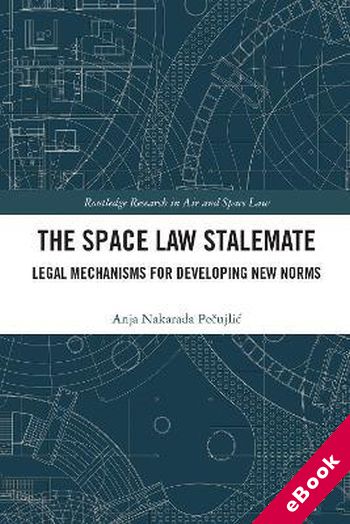
The device(s) you use to access the eBook content must be authorized with an Adobe ID before you download the product otherwise it will fail to register correctly.
For further information see https://www.wildy.com/ebook-formats
Once the order is confirmed an automated e-mail will be sent to you to allow you to download the eBook.
All eBooks are supplied firm sale and cannot be returned. If you believe there is a fault with your eBook then contact us on ebooks@wildy.com and we will help in resolving the issue. This does not affect your statutory rights.
The governing international space law regime has been locked in a norm-creation stalemate for over 40 years. This stalemate endangers the preservation of established, guiding legal principles, as well as the sustainability of the parts of outer space that humans utilize. The discrepancy between norm creation, technological advancement and the ecosystem of novel actors could generate serious consequences for future space activities and the nature of international relations. Besides the return of old rivalries in a New Cold War, new activities and actors emerging amidst a legal void emphasizes the risks of the stalemate: unstable peace, fragile cooperation, uneven technological development and uncertain eco-sustainability. Therefore, the prolonged legal stalemate cannot be treated simply as an academic question for it has broader political and economic implications of growing strategic relevance. Unresolved issues in international space law could threaten the survival of space as a global common, thus it is essential that the ability of the norm-creation mechanism of UN COPUOS is equipped to address the ongoing changes and provide for adequate global governance. This book conducts an evaluation of the current legal state and sheds light on potential future prospects, offering an overview of the political context within which it developed, providing an assessment of the selected successful examples in international law, analysing lessons learned and makes recommendations for how the UN COPUOS legal apparatus should be modified in order to ensure that future space activities are possible beyond anarchy, greed, ecological irresponsibility, and to ensure that the principle of the peaceful uses of outer space remains the governing norm.